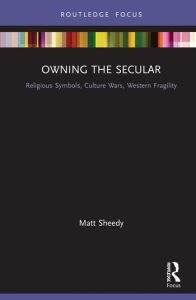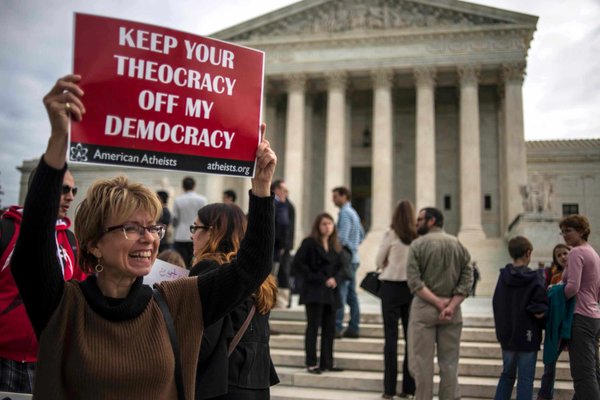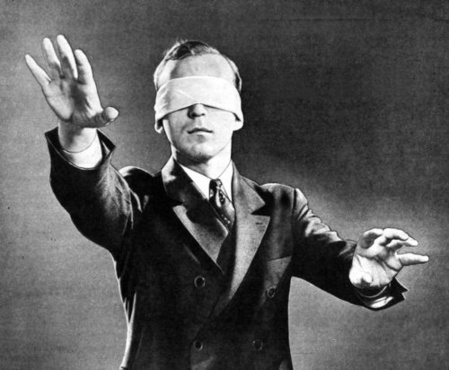 Exciting news from Edge member Matt Sheedy: his new book Owning the Secular: Religious Symbols, Culture Wars, Western Fragility (Routledge, 2021) has just been published!
Exciting news from Edge member Matt Sheedy: his new book Owning the Secular: Religious Symbols, Culture Wars, Western Fragility (Routledge, 2021) has just been published!
From the Routledge site:
Drawing on theories of discourse analysis and ideology critique, this study calls attention to an evolution in how secularism, nationalism, and multiculturalism in Euro-Western states are debated and understood as competing groups contest and rearrange the meaning of these terms. This is especially true in the digital age as online cultures have transformed how information is spread, how we imagine our communities, build alliances, and produce shared meaning.
From recent attempts to prohibit religious symbols in public, to Trump’s so-called Muslim bans, to growing disenchantment with the promises of digital media, this study turns the lens how nation-states, organizations, and individuals attempt to “own” the secular to manage cultural differences, shore up group identity, and stake a claim to some version of Western values amidst the growing uncertainties of neoliberal capitalism.

 Perhaps you’ve caught the news about a recent Supreme court decision in the U.S. in which (by a slim, but sufficient, 5-4 majority) local town meetings that begin with prayer were held to be constitutional — so long as religions were not actively excluded from the opportunity. The majority (read the decision, and various commentaries, for yourself
Perhaps you’ve caught the news about a recent Supreme court decision in the U.S. in which (by a slim, but sufficient, 5-4 majority) local town meetings that begin with prayer were held to be constitutional — so long as religions were not actively excluded from the opportunity. The majority (read the decision, and various commentaries, for yourself  Not long ago I
Not long ago I